Addressing at the Opening of the Stockholm+50, UN chief Antonio Guterres urged countries to “embrace the human right to a clean, healthy environment for all people, everywhere – especially poor communities; women and girls; indigenous peoples; young people and the generations to come.”
The Capital City of Sweden today (02 June) saw the Commemorative Moment dedicated to the United Nations Conference on the Human Environment, which was held in Stockholm from 5-16 June 1972.
UN Secretary-General Antonio Guterres opened the plenary meeting. He said that the world is facing a triple planetary crisis. A climate emergency that is killing and displacing ever more people each year. Ecosystem degradation that is escalating the loss of biodiversity and compromising the well-being of more than 3 billion people. And a growing tide of pollution and waste that is costing some 9 million lives a year.
The UN chief reiterated that the international community needs to change course – now – and end the senseless and suicidal war against nature.
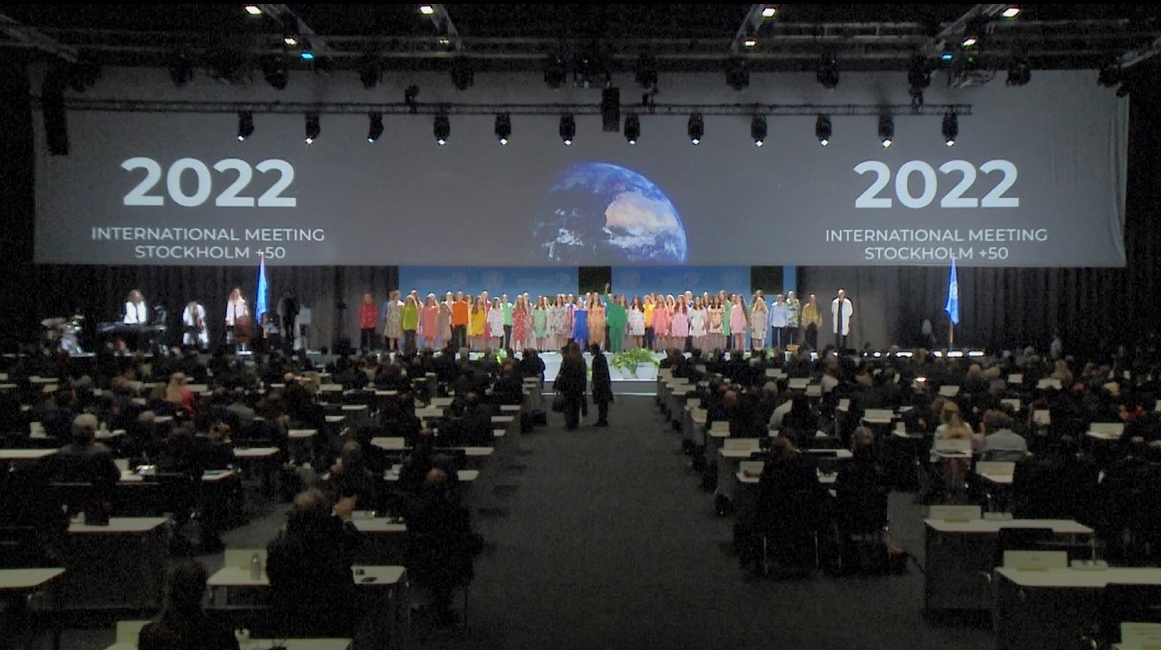
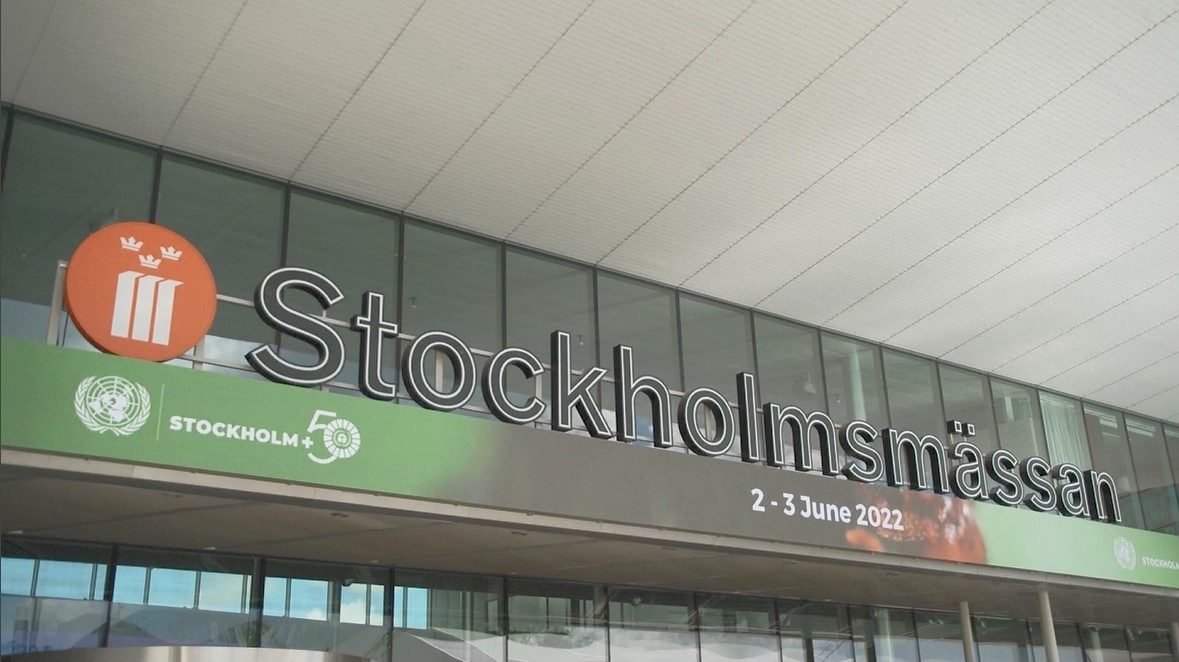
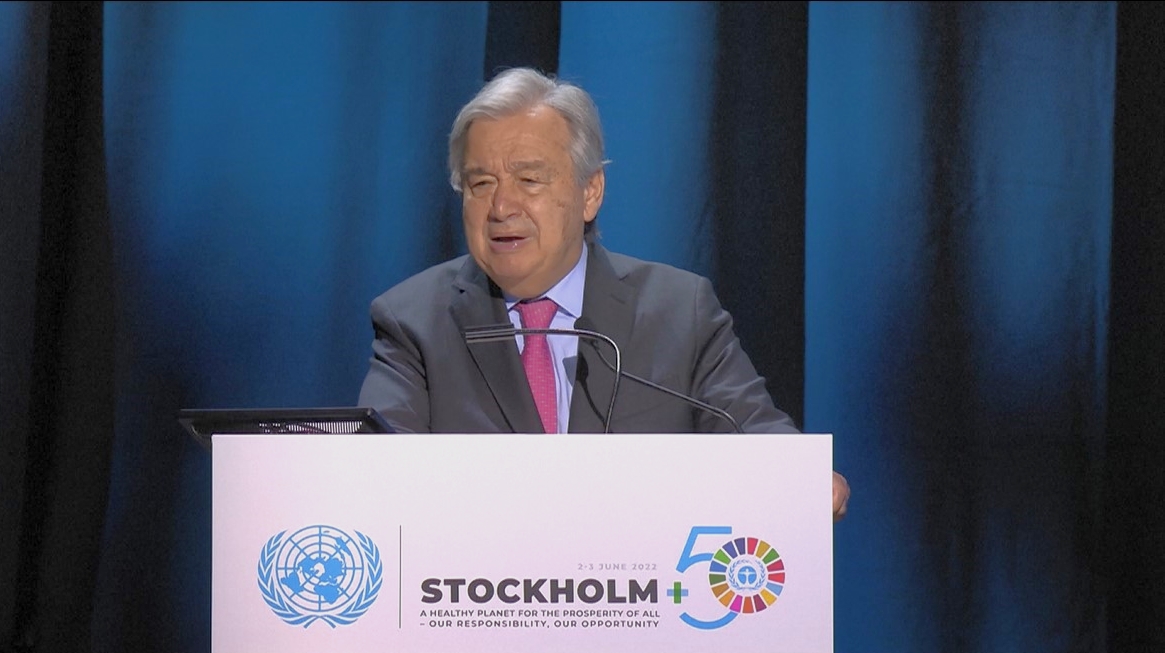
咩咩咩咩咩咩咩咩
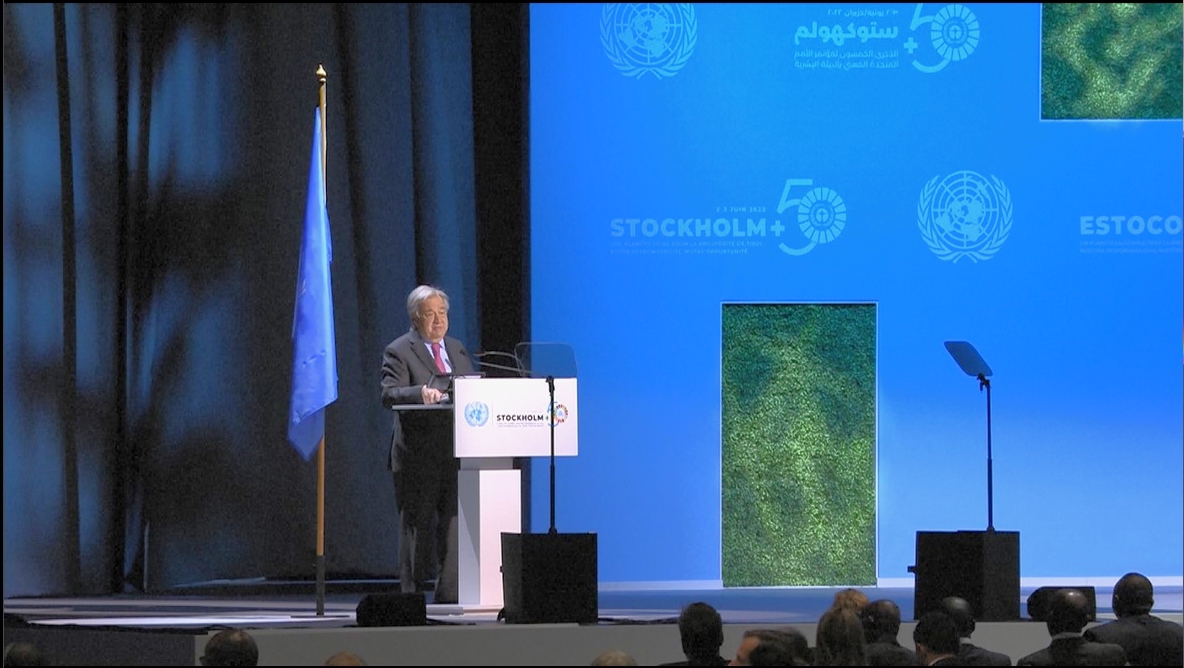
He said, “scientists recently reported that there is a 50:50 chance that we could temporarily breach the Paris Agreement limit of 1.5 degrees Celsius in the next five years. We cannot let that happen.”
Guterres reiterated, “we must cut greenhouse gas emissions by 45 per cent by 2030 to reach net-zero by 2050. And developed nations must at least double support to developing countries so they can adapt and build resilience to the climate disruption that is already happening.”
He called on G20 governments to dismantle coal infrastructure, with a full phase-out by 2030 for OECD countries and 2040 for all others. And I call on all financial actors to abandon fossil fuel finance and invest in renewable energy. Renewable energy technologies should be seen as a global public good. The necessary raw materials should be available to all.”
Guterres continued, “we must scale up and diversify supply chains; Reform bureaucracies to provide clarity to investors; Fast track permits for renewable energy projects and accelerate grid modernization; Shift subsidies from fossil fuels to support vulnerable people and advance renewables; And triple investments in renewables to at least $4 trillion dollars a year.”
The UN chief also reiterated, “to rescue the global environment – and humanity’s future -- we must transform the accounting systems that reward pollution and waste. We must place true value on the environment and go beyond Gross Domestic Product as a measure of human progress and well-being.”
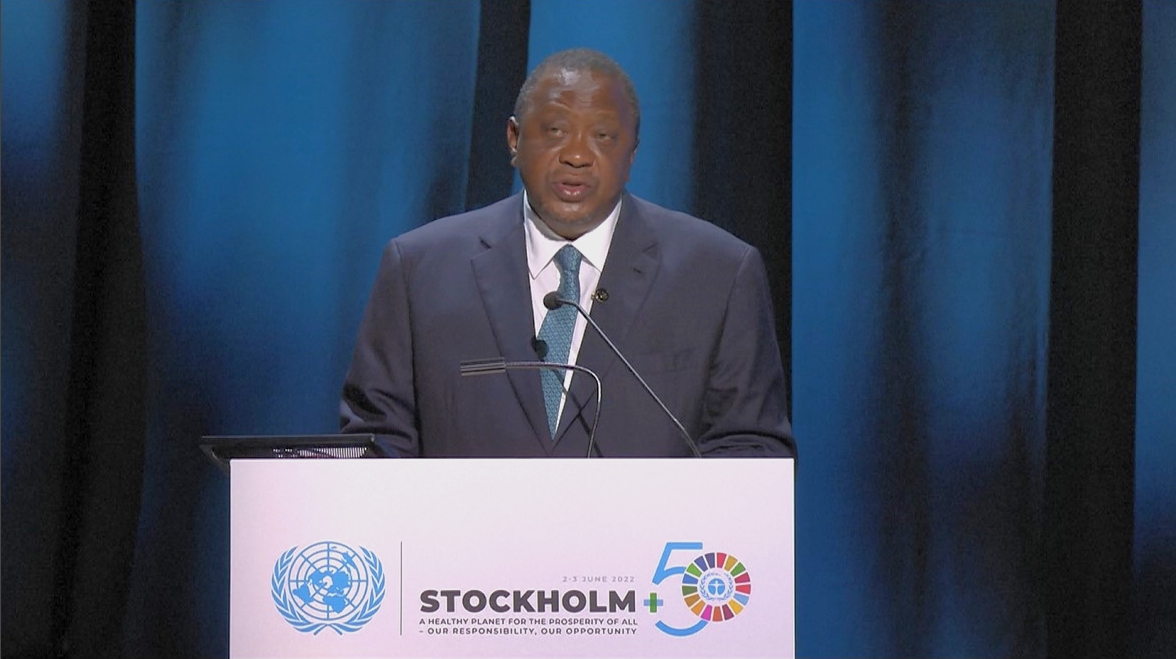
Also speaking at the meeting, Kenya President Uhuru Kenyatta took the opportunity to remind the international community that “Africa, despite its relatively limited global emission footprint is suffering disproportionately from the impact of climate change.”
He said, “we are currently facing a multiple climate related humanitarian crisis. In the Sahel region, the Horn of Africa and in parts of southern Africa as well as a result of flooding, drought, rising sea levels. And while these crisis's require urgent and collective action, it is even more important to take action to forestall more such crisis.”
The Kenyan President urged all partners across the globe to “honor their commitments to double global climate finance especially for adaptation to enable developing countries to invest in climate resilient infrastructure and systems.”
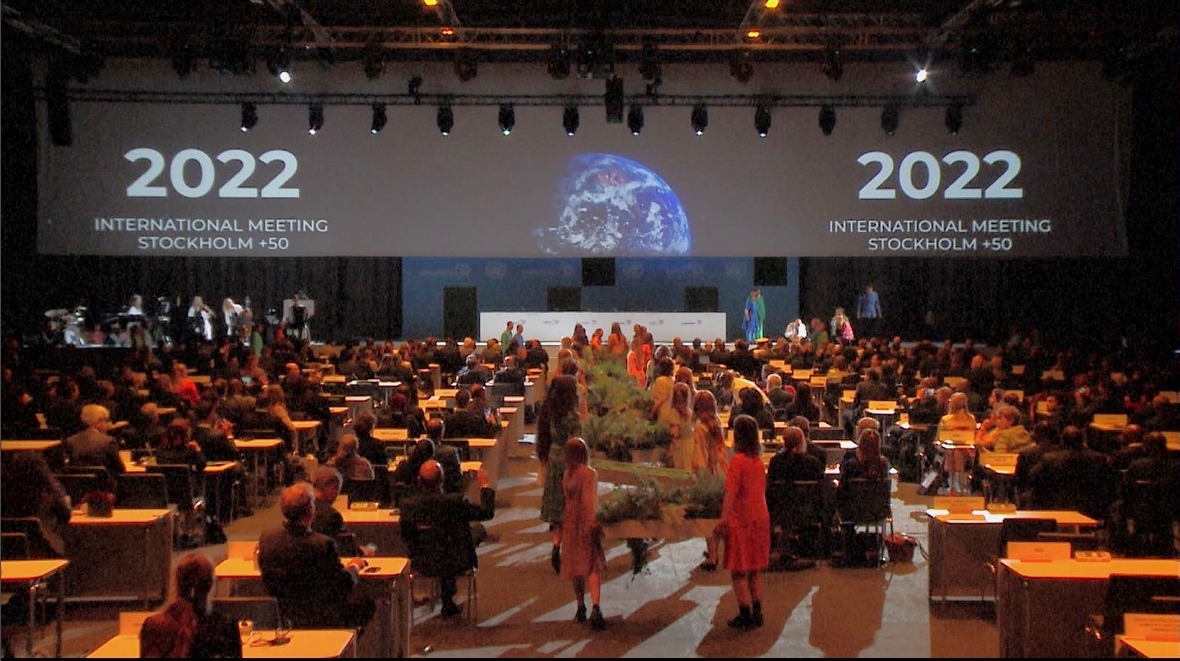
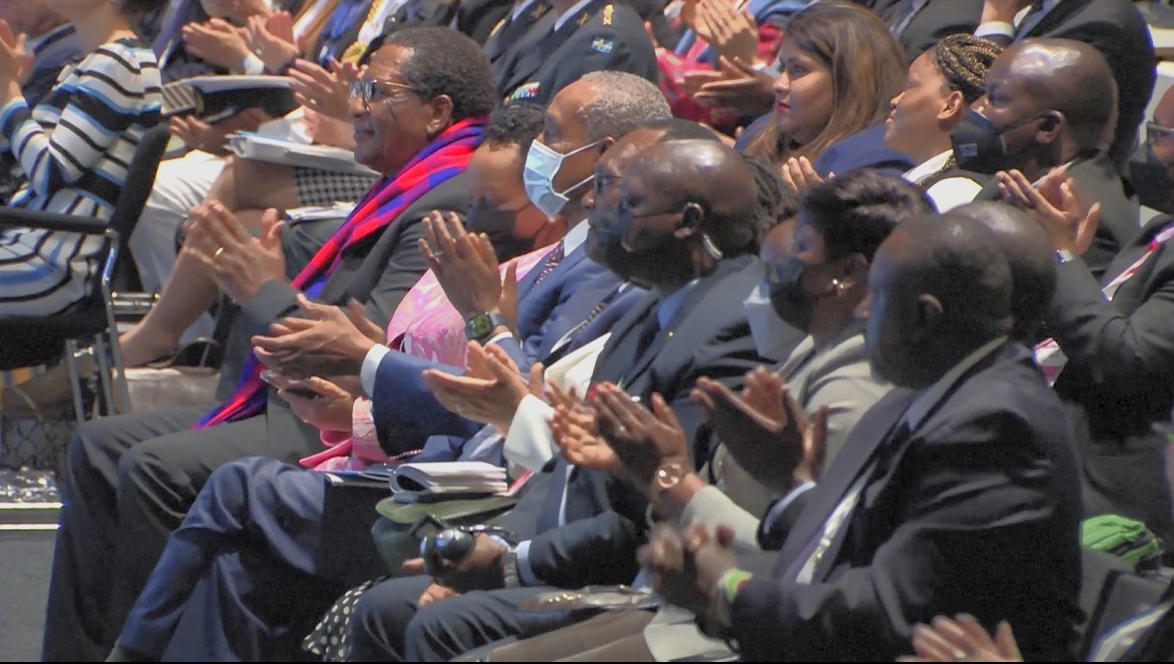
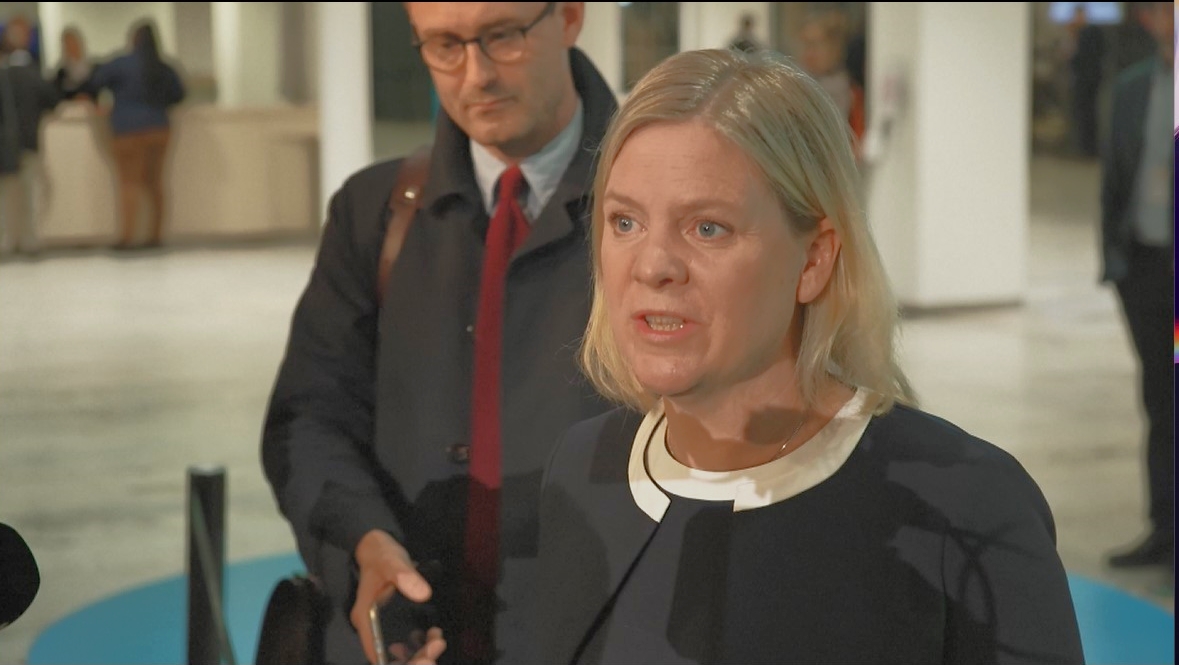
Earlier at a press encounter, the Swedish Prime Minister whose country is hosting the meeting said, “the purpose of this meeting today is that we go home from here and do much more and do it much faster. This is not for making new promises. This is about delivering on the promises we have already made. We have already talked the talk. Now it's time to move on.”
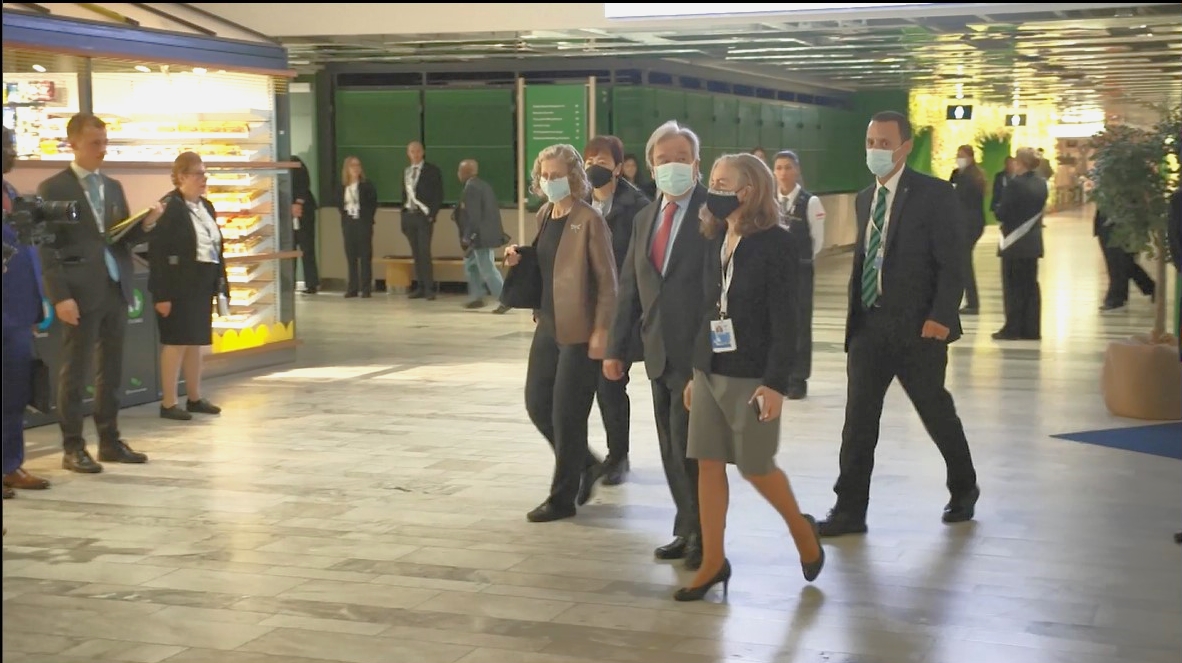
Stockholm+50 is convened by the United Nations and is hosted by Sweden with support from the Government of Kenya.
By recognizing the importance of multilateralism in tackling the Earth’s triple planetary crisis – climate, nature, and pollution – the event acts as a springboard accelerate the implementation of the UN Decade of Action to deliver the Sustainable Development Goals, including the 2030 Agenda, Paris Agreement on climate change, the post-2020 global Biodiversity Framework, and encourage the adoption of green post-COVID-19 recovery plans.
 Celebrity Media TV
Celebrity Media TV









